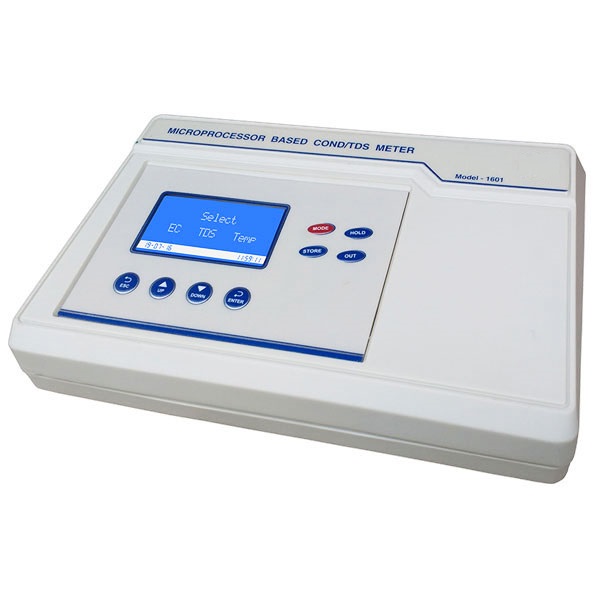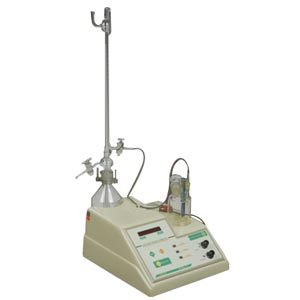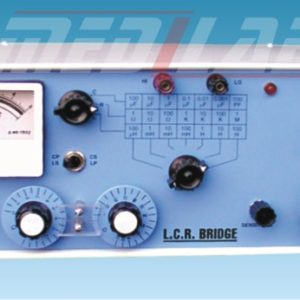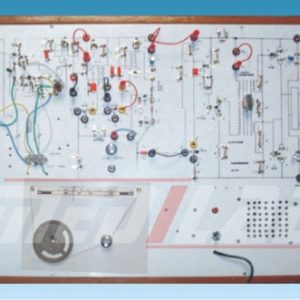Description
Microprocessor Based Conductivity TDS Meter is a laboratory instrument used to measure the conductivity and total dissolved solids (TDS) of a solution. It uses a microprocessor-controlled system to provide precise and accurate measurements of the electrical conductivity of the solution.
The instrument consists of a conductivity cell, a microprocessor-controlled system, and a display. The conductivity cell is placed in the solution, and an electrical current is applied to the cell. The instrument then measures the electrical conductivity of the solution, which is proportional to its TDS.
Microprocessor-based conductivity/TDS meters are commonly used in the water treatment, food and beverage, and chemical industries to measure the quality of water and other solutions. They are also used in research laboratories to measure the conductivity of solutions for a variety of purposes.
The advantages of using a microprocessor-based conductivity/TDS meter include its ability to perform precise and accurate measurements, its automation of the measurement process, and its ability to handle a wide range of sample types. They are also faster and more efficient than traditional methods of conductivity and TDS measurements, such as titration and gravimetric analysis.







